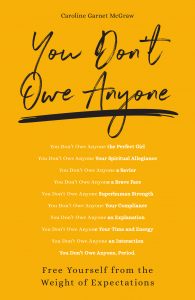When I was five years old, my three year old brother Willie was diagnosed with autism. One of my first memories is of playing on a little jungle gym in the diagnostic center, then holding our mother as she wept. I didn’t understand what was happening, but I felt the impact of it.
Soon after, our parents sat me down and told me that there was something different about Willie’s mind, that he did things in his own way. They reassured me that I didn’t need to worry because he would be OK and we would be OK.
But I would need to be patient and kind, a good daughter, a good older sister.
Could I do that? they asked. Could I be good?
“Yes,” I said. “Yes, I will be good.”
Those words were my solemn vow. Frankly, it was a relief to speak them aloud. I appreciated having a clear role, a purposeful way to help our family. Willie would be different, and I would be good, and we would all be OK. It became a simplistic equation in my psyche: one different boy plus one good girl equals a family in which everyone is OK.
From that point forward, being “good” was my safe place. Sure, it was hard work, but at least it gave me a sense of control. At the time, it seemed like a small price to pay.
–
In the wake of that diagnosis, I lay in bed one night and it came to me so clearly that there must be a heaven. In some wordless way, I knew that heaven would be a place where I could really talk with my brother. In heaven, I could ask him questions and he would always answer.
More than anything, I wanted a window into Willie’s mind and heart.
Though it wasn’t always easy to connect with Willie, I found that making him laugh was one such window. Soon, I discovered that his favorite form of humor was the purposeful mistake.
Since he loved Disney movies, I’d take the lyric from Cinderella – “The dream that you wish will come true” – and mix it up.
I’d say, “A wish will come … blue!” Or, “A wish will come … clear!”
He’d crack up, and for just a moment I’d feel heaven close at hand.
–
Much later, I learned that Navajo artisans traditionally weave small, purposeful mistakes into their blankets. These master craftspeople include intentional slip-ups in their best work.
Why? Because they believe that the “mistake” is the very space that allows Spirit to move in and out of the fabric.
My intention for this place is that it be like the intentional gaps in those Navajo blankets: a space for Spirit to move and set us all free.
Here, I share stories from my own path out of perfectionism and into possibility. I invite you to join me and thousands of fellow pilgrims on the journey.
Receive the first chapter of my book, You Don’t Owe Anyone: Free Yourself from the Weight of Expectations!
You Don’t Owe Anyone has sold over 5000 copies, been translated into three languages, and was recommended in Publishers Weekly.
Dive in to learn how to free yourself from the weight of expectations and move forward without apology. (You’ll also receive new posts via email and other goodies.)

Solemn No Spam Vow: I promise never to share your email with anyone else.